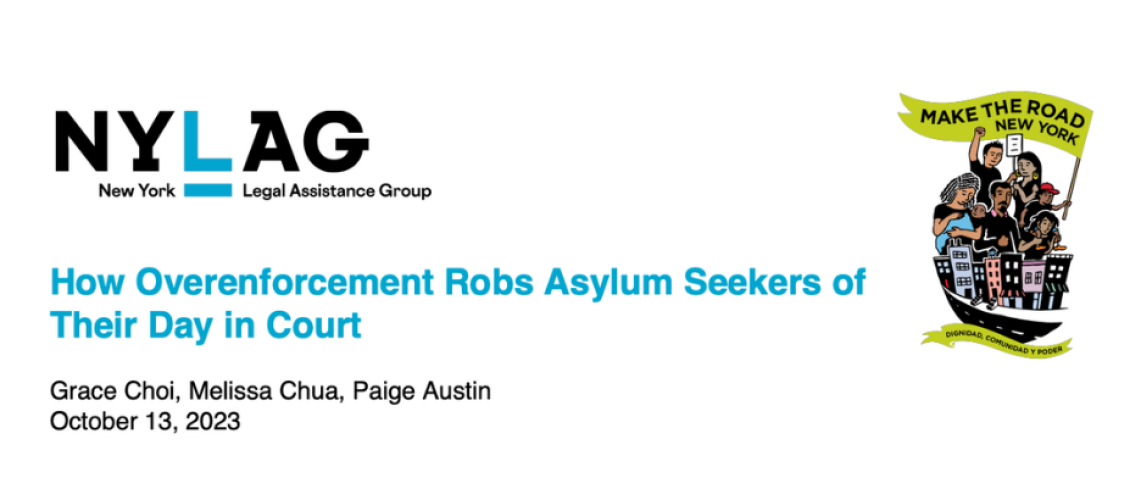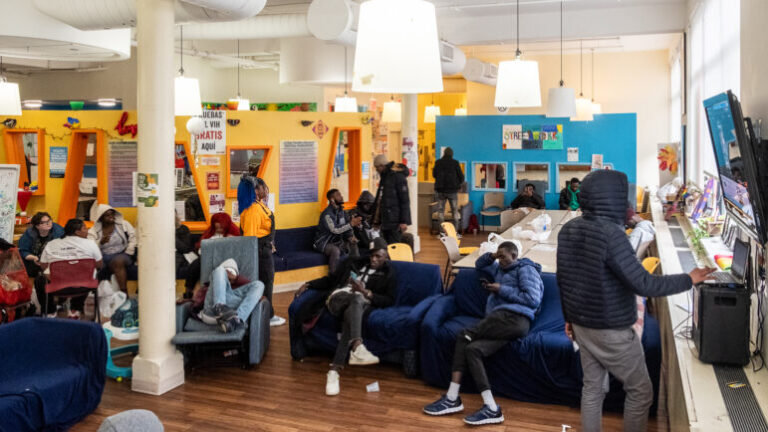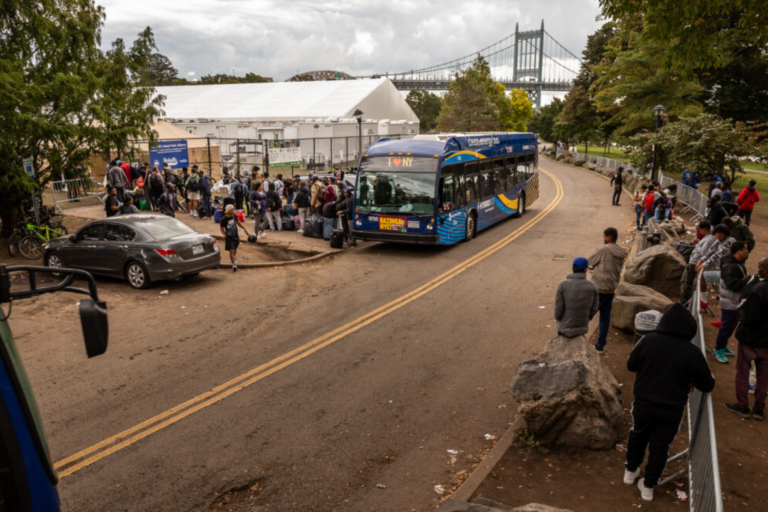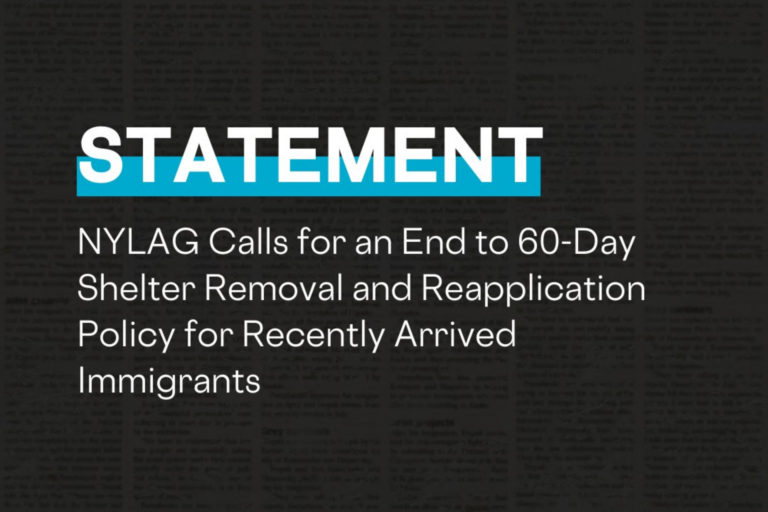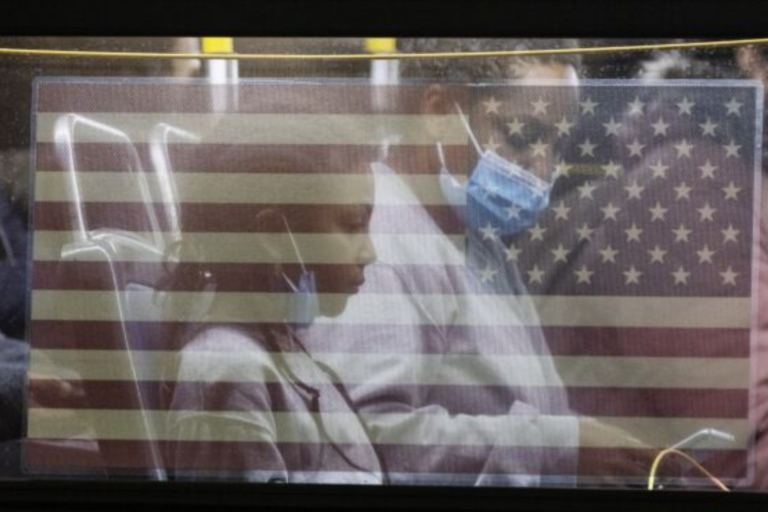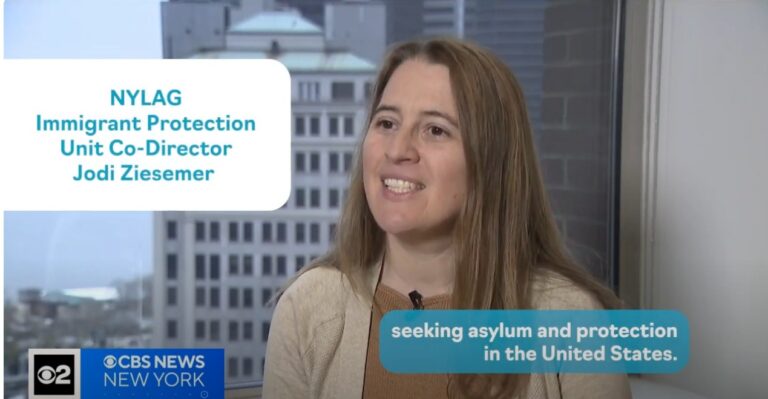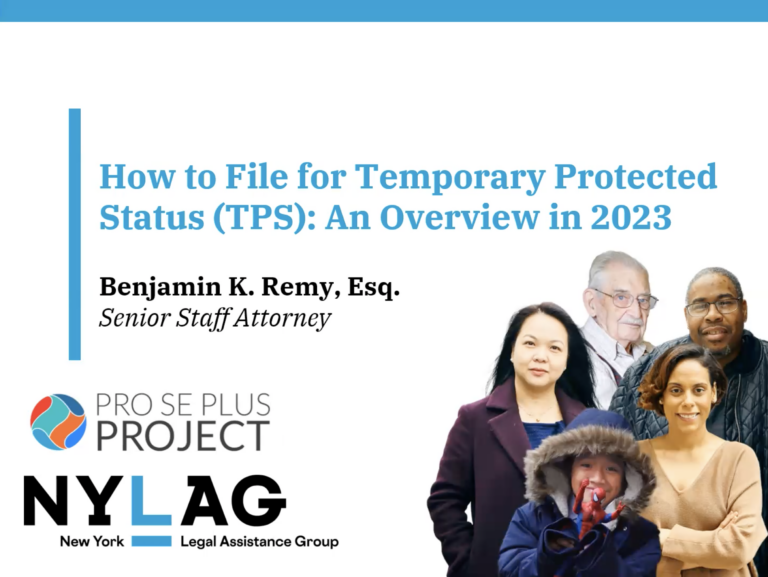To: Interested Parties
From: New York Legal Assistance Group and Make the Road New York
Date: November 6, 2023
Re: How Overenforcement Robs Asylum Seekers of Their Day in Court
In the ever changing circumstances surrounding newly arrived immigrants to New York City, New York Legal Assistance Group (NYLAG) and Make the Road New York (MRNY) have published a white paper on how government’s insistence on an enforcement-only approach to immigration robs asylum seekers of their day in court.
TOPLINES
- NYLAG and MRNY’s post-order practice this past year exposed the impact that overenforcement has had on the basic due process rights of asylum seekers, leaving many ordered removed without their day in court.
- Government errors from overenforcement caused asylum seekers to miss their hearings and receive in absentia orders.
- The U.S. government has an obligation to provide due process to asylum seekers and justice mandates that our Courts give everyone an opportunity to present their claim and be heard. The current reality deprives many migrants of these rights and results in dangerous deportation orders based on administrative failures of our institutions.
KEY FINDINGS
- Asylum seekers with every intention of attending their immigration court hearings were ordered removed because of avoidable government negligence and confusion.
- We noted the following trends:
- The Executive Office of Immigration Review (EOIR) ordered individuals removed in absentia despite individuals being denied entry to 26 Federal Plaza by government employees and contractors;
- EOIR and/or the Department of Homeland Security (DHS) issued flawed hearing notices or Notices to Appear (NTAs);
- Immigration and Customs Enforcement (ICE) officers provided incorrect and confusing information about hearing dates or failed to provide basic and crucial information about the lack of connection between ICE and the immigration court (despite their colocation in the same building in Manhattan);
- ICE officers noted the wrong address or venue;
- EOIR were unable to reschedule hearings in the event of illness; and
- EOIR lacked a mechanism for those intending but unable to appear at their hearings to notify the Court.
In this paper, NYLAG and MRNY delve into the motions the organizations prepared and each of the above-mentioned issues, as well as our recommendations to address them. Read the full paper here.

